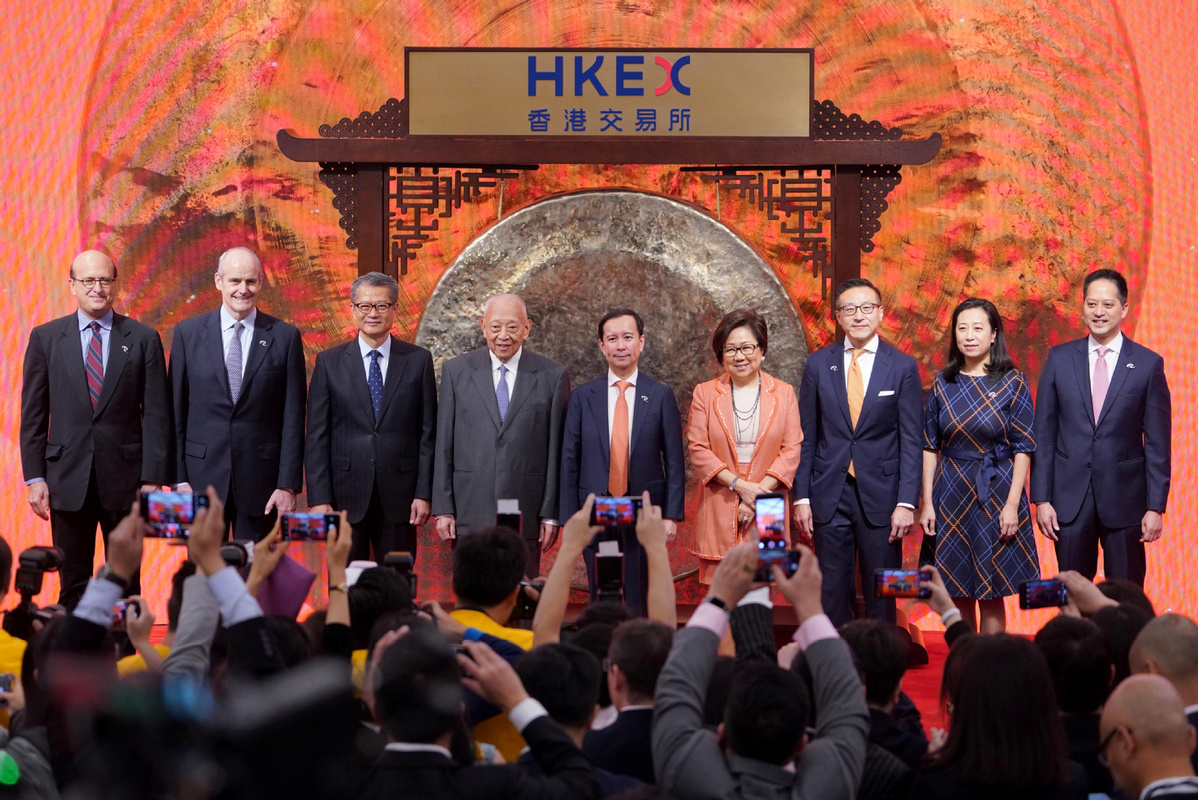By He Wei in Shanghai and Luo Weiteng in Hong Kong | China Daily
Updated: Nov 27, 2019
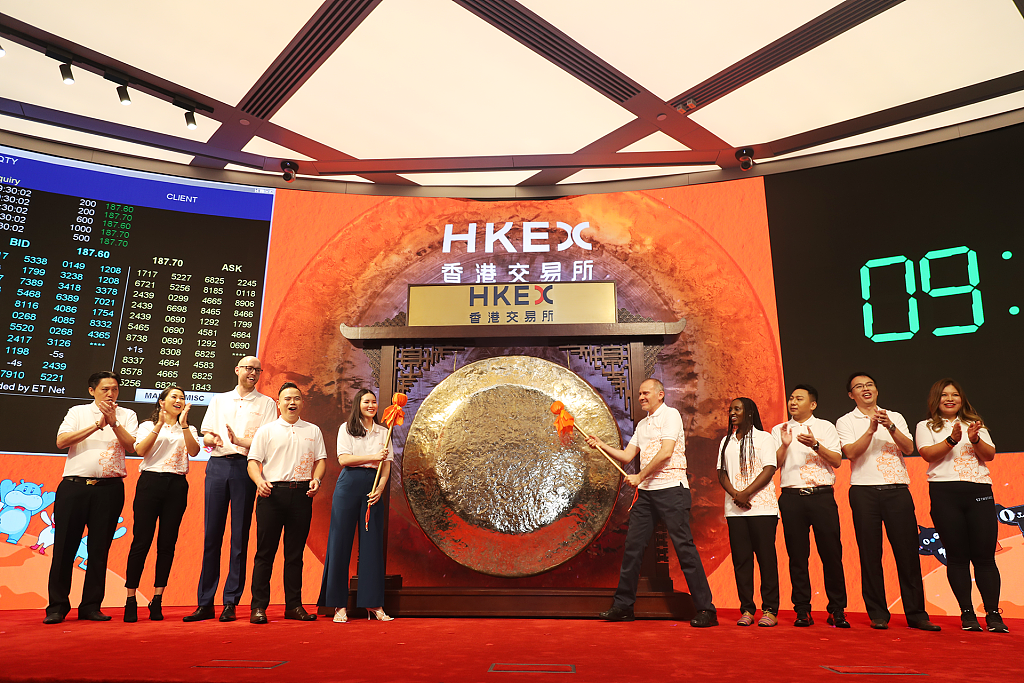
Some five years after Alibaba Group first went public in New York, shares of the Chinese internet giant made a solid debut in Hong Kong on Tuesday marking the largest initial public offer on that market so far this year.
Alibaba's Hong Kong-listed shares jumped 6.25 percent above its issue price of HK$176($22.50) per share on Tuesday morning before hitting an early intraday high of HK$189.5. They closed 6.59 percent up at HK$187.60.
Alibaba operates the Taobao and Tmall online retail platforms along with a wide array of logistics, cloud computing and financial services.
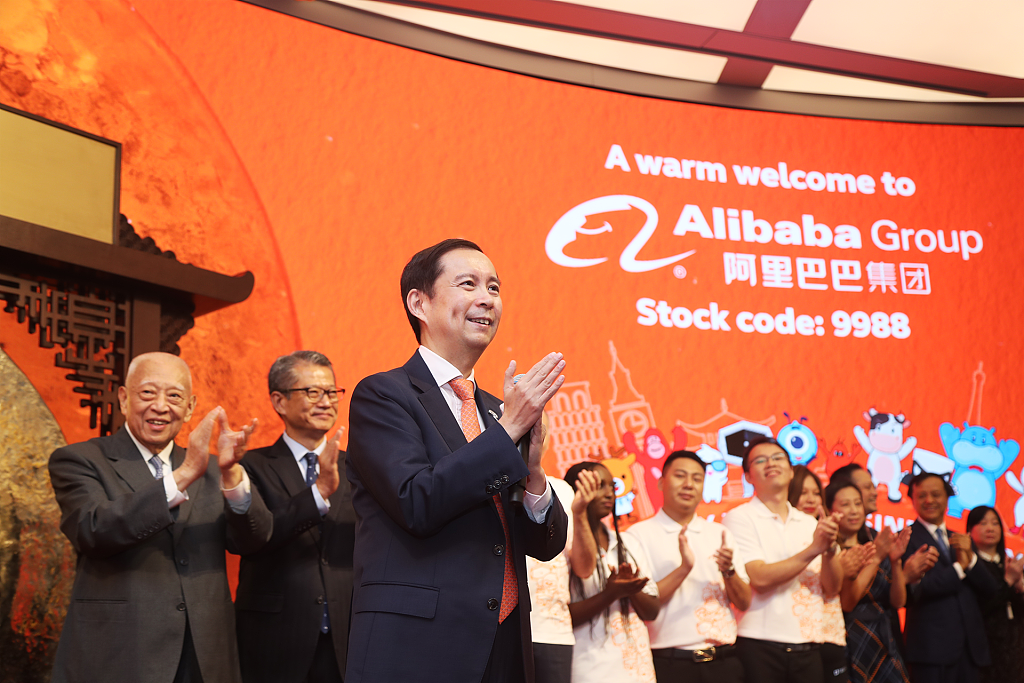
"I especially want to thank Hong Kong and the Hong Kong bourse for the city's innovation and the reform of its capital market in the past few years," said Daniel Zhang, chairman and CEO of Alibaba at the iconic bell-ringing ceremony.
"These have enabled us to live up to the promise we made five years ago that 'if conditions permit in Hong Kong, we will definitely return'."
The company has called Hong Kong its "natural first choice" for share floating due to the proximity to the Chinese mainland where the lion's share of its businesses lies.
Yet a proposal in 2014 that would have allowed it to circumvent the exchange's ban on dualclass shares was rejected, propelling it to record a blockbuster IPO the same year in New York.
Dual class loosely refers to a mechanism that allows mainly tech entrepreneurs to keep control of their startups even after going public.
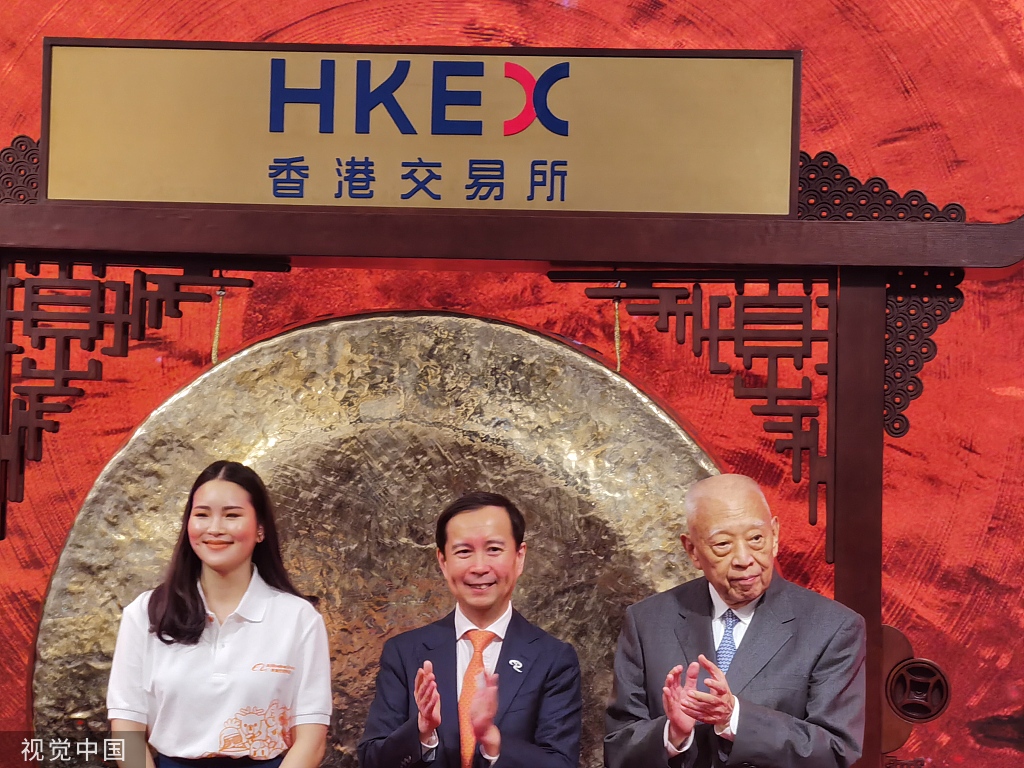
However, relevant rules in Hong Kong were relaxed in 2018, ushering in major listings from China-based tech companies like ondemand service Meituan Dianping and smartphone maker Xiaomi Corp.
"I even foresee the possibility of Alibaba seeking an A-share listing (an IPO in Shanghai or Shenzhen). The rollout of Chinese Depositary Receipts last year, for instance, is setting the stage for such highquality returnees to boost the domestic capital market," said Dong Yizhi, a Shanghai-based lawyer with Yida Law Firm.
As a gesture of globalization and diversification, Alibaba invited 10 business partners from eight nations to the IPO ceremony, each representing a different trade ranging from cloud computing, financial services, internet of things and local services that the tech juggernaut is now widely engaged in.
Given Alibaba's world-class size and impact, there's definitely symbolic significance for such a "national core asset" to list back home, said Cui Libiao, contributing researcher of the Internet Economics Research Center and CEO of Hangzhou-based Yingdong Education.
"In light of global economic uncertainty, domestic investors have a better understanding and appreciation of Alibaba's business logic and are thus likely to further boost its valuation," Cui noted.
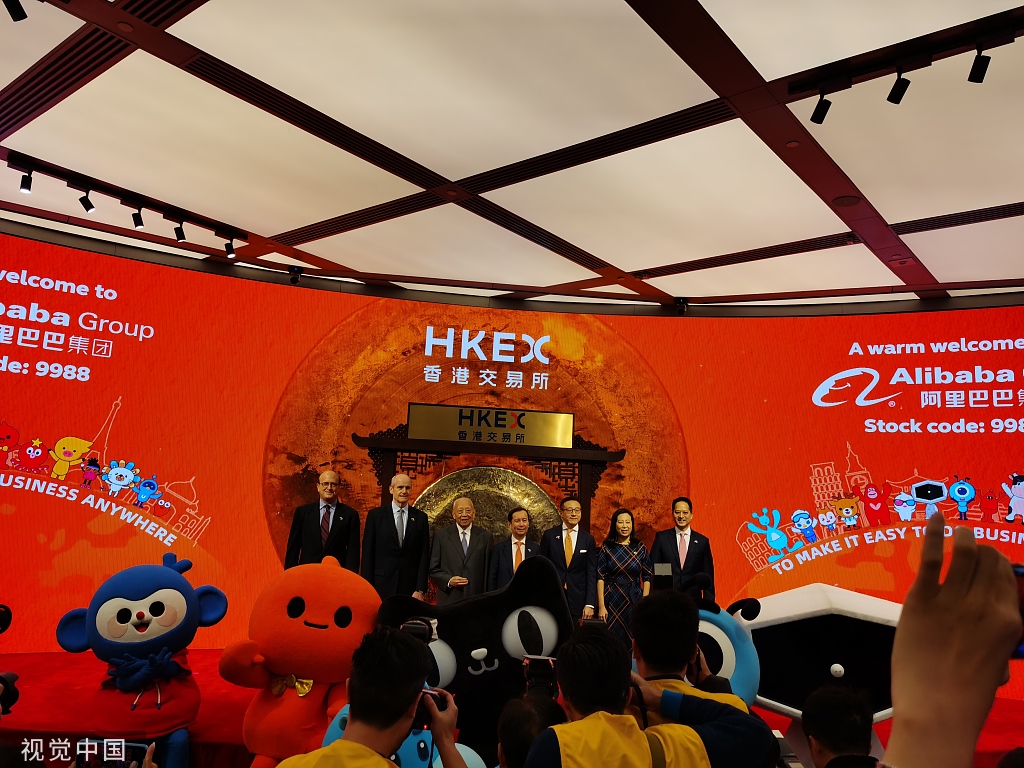
Alibaba said that based on its issue price of HK$176 per share, it raised HK$101.2 billion by selling 575 million new shares to investors. The company noted that the retail portion was oversubscribed by 42 times.
With a market capitalization of more than HK$4 trillion, the e-commerce behemoth, the first Chinese mainland-based internet company dual listed in the US and Hong Kong, now knocks Tencent Holdings off the top spot to become the most valuable company by market capitalization on the Hong Kong exchange.
"As Alibaba and Tencent look to join hands to serve as a pair of anchors of stability, it will be more and more difficult for short sellers to attack the Hong Kong stock market, sharpening the city's edge as a go-to IPO destination for promising firms," said Li Daxiao, chief economist at Yingda Securities.
Li believed the Hangzhou-based company also sets a clear example for overseas-listed Chinese mainland companies, especially those with weighted voting-right structures, to follow suit and head back home.
